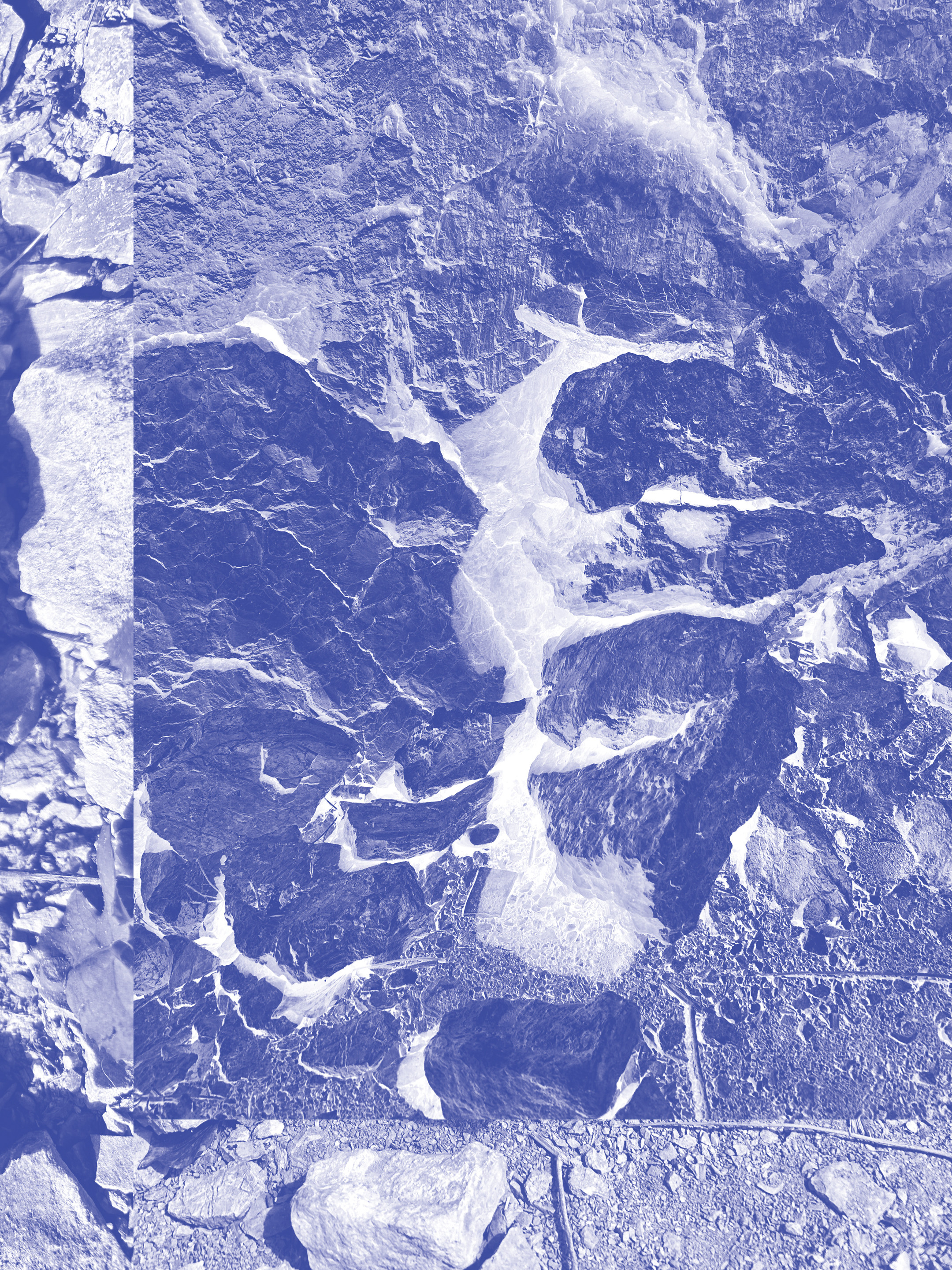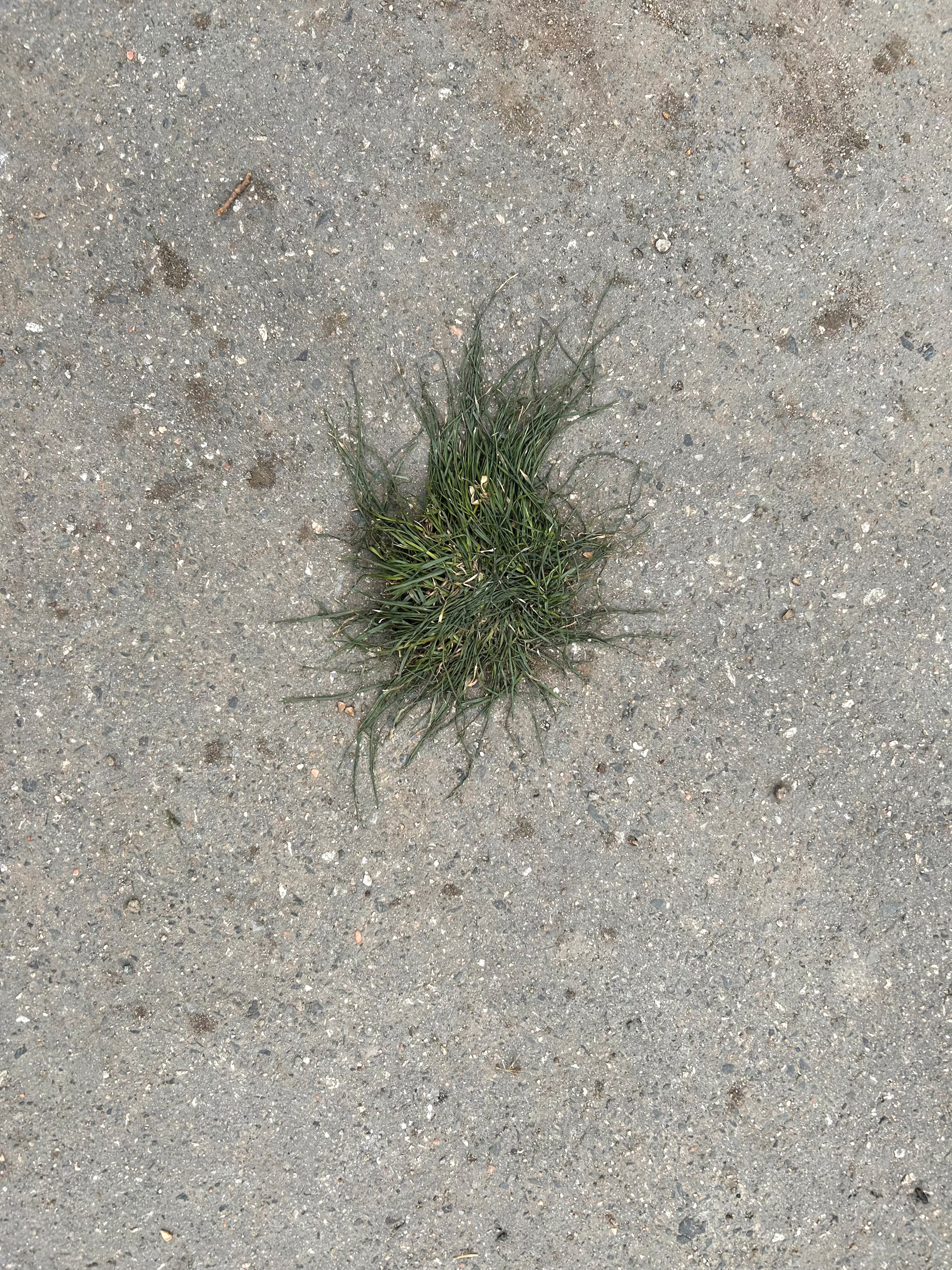Lamija Čehajić↓
Gallery
Studies
| 2020–2023 | Intermedia 3, AVU |
| 2018–2021 | Faculty of Humanities, Charles University, Liberal Arts and Humanities |
| 2016–2019 | Prague College, Fine Art Experimental Media |
| 2021 | Kunsthalle Wien scholarship, curatorship team headed by the WHW (What, How & for Whom) collective |
About the work
too small to become a lake ~ too large to be swallowed by the earth
#landscape #sense of belonging #migration #impossibility #situatedness
What is your graduation work about?
My graduation work refers to the more extensive theoretical research that I have been intuitively conducting for a few years, intertwined into my slow artistic practice. It seeks to articulate relationships with the landscape, specifically relating to the temporality of stones and minerals. It attempts to understand sediments as elements that are composed of substances that have appeared in a given place and settled there through fossilisation
- for me, the stone is a way of anchoring (myself) in the process of migration and seeking. I think of the molecular exchanges that the body absorbs without realising, the dust of the geological bodies worn down to find itself sedimented in the lungs. For the viewer, this work should resemble a state of reading a poem on a park bench, as naïve as that might be. Offering a moment of repose, and if that were accompanied by absorbing a few words in the space, I would be glad.
What do you do besides your graduation work?
Lately, I often find myself in the position of a producer or someone similar – a kind of multi-functional person who does the work in the background which facilitates the artistic creation of others. I am now trying to grasp the implications that these commitments have for my work and how they exhaust me on the one hand and enrich me with practical experience on the other. In general, I feel as if I were working all the time: either on grants, translations, or subtitles, so what I am trying to consciously do is rest more radically, which for me is still a process of (un)learning that my value is not directly derived from my productivity.
In what conditions would you like to work on your graduation work?
My graduation work itself is about situatedness and it inherently carries all the conditions of labor through which it gradually emerges. For me personally, the most significant change for the better would be if I could perceive my future in the art world more optimistically while dealing with my present practice. Therefore, I hope a better cultural policy awaits us all, resulting in better working, social, and economic conditions. It would be nice to reach a solution for the question of the Status of the Artist. I continue to dream of eco–feminist futures. In the meantime, at least the rent capping would help in this effort and struggle.
What would you imagine to be an alternative culmination of your studies at AVU, in place of the defense of your graduation work?
Verbally expressing the ideas that make up the final output has always been essential for my artistic practice. For me, the place of this dialogic encounter is the space where the idea grows into something more permanent, more conceptually solid. But this is only my take on what I need. I still see great value in the spoken word, and I do not think we should abandon that part of the studies entirely. However, the power relations of these obligatory dialogues and their purpose need critical rethinking. I would call for a more collective debate, perhaps during graduates’ residencies, which could also ease the transition from the framework of the institution to the free fall that many of us face after graduation.


